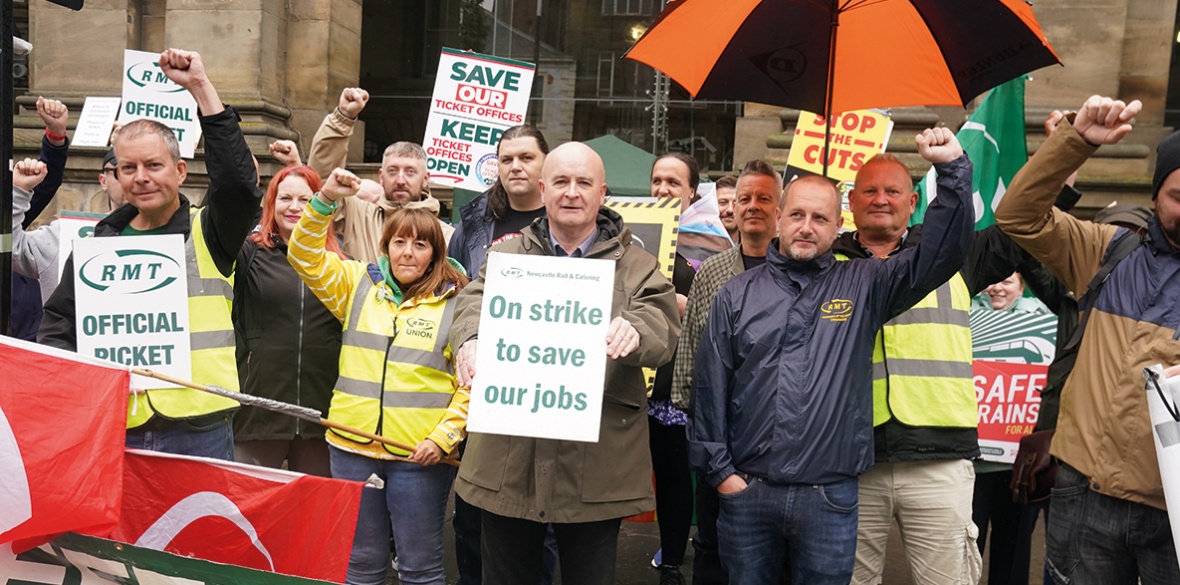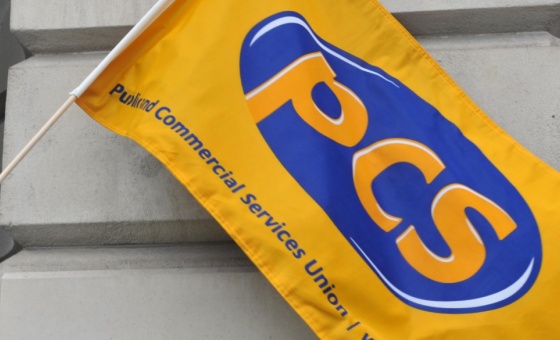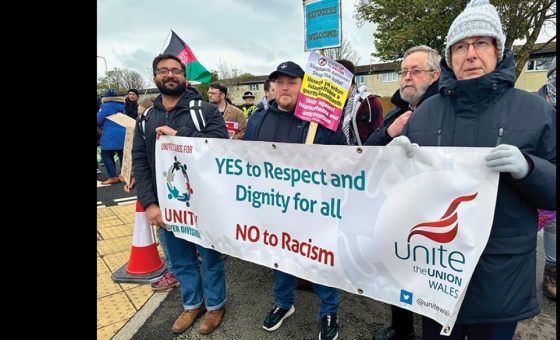This is the last article you can read this month
You can read more article this month
You can read more articles this month
Sorry your limit is up for this month
Reset on:
Please help support the Morning Star by subscribing here
AROUND 5.5 million workers in Britain are organised in trade unions which are affiliated to the TUC and there are a few thousand more non-affiliated.
This is the largest democratic body of people in the country, but, more importantly, all these workers are organised in a structure that is designed to play a role in the class struggle.
Trade unions are of central importance in the unavoidable conflict between the two main classes in capitalist society — between the class which owns most of industry and commerce and the class whose labour is essential for our economy and society to function.
That is not to say that trade unions are always actively leading in this class struggle, but even when they are fairly latent they still get in the way of the freedom of the market to exploit. The recent period has seen a significant increase in conflict.
Post-pandemic, employers and their government have done what they always do with a crisis: shift power in their favour, speeding up what they were doing anyway. But what the government did not reckon for was the resolve shown by trade unionists.
In early summer 2022, the postal and rail unions were picked on with below-inflation pay offers and major restructuring of their industries, called “modernisation” to soften up the public and workers.
The unions stood firm and sensibly stretched out their striking, hoping for the struggle to spread across education, health and government workers.
It did, and public support grew as the injustice of below-inflation pay rises was recognised by most.
The restrictive ballot thresholds were smashed many times and the consciousness, that workers shared the same enemy, grew.
While the trade unions were at the forefront of the struggle against government-imposed cuts to pay and services, in the private sector, some of which was previously public, hundreds of local and company strikes were voted for — and most were won.
Others continue, and the Amazon workers have a difficult job in taking on this ruthless employer. They deserve solidarity from across the movement.
At the same time, other movements were growing. The housing crisis has led to increased activism and protest.
The right to food and campaigns against fuel poverty have sprung up across the country.
There has been a significant shift in public opinion against the pollution of our rivers and seas, and climate change protest has become much more visible.
Forty years of neoliberalism have broken Britain and everybody knows it. While most of our representatives in Westminster ignore this, the extraparliamentary movement grows — and must grow much more, with trade unions in the lead and a co-ordinating role for the People’s Assembly.
A good example of this coalition of forces with trade unions in the lead is the campaign against rail ticket office closures.
On top of other government-required railway industry cuts, the chopping of well over 2,000 rail staff jobs in ticket offices in England and Wales has opened a new front.
The resistance has been fantastic with RMT, supported by TSSA and Aslef, leading opposition with dozens of nationwide protests and 680,000 people joined the consultation to oppose these cuts. A powerful alliance has emerged.
Workers are fighting for their jobs and against the shrinking of the rail industry as a public service.
Disabled people, many of whom have not been able to join the online consultation, are demanding their right to travel. Women and night-time rail users want safe stations. Environmentalists have joined in to oppose the move from rail to road.
There is also a growing resistance to digital-only interaction from those who need or want a human to help them. Similar coalitions can develop in campaigns to defend health, education and other public services.
During this ongoing period of escalated strike action, those unions that have worked together and engaged in solidarity have been more likely to win. Sector co-ordination and ultimately sector collective bargaining are the logical conclusion of this if workers are to win the wages and conditions they want.
Similar unity of purpose and action will be needed to stop the implementation of the government’s Strikes (Minimum Service Levels) Act 2023 which will make effective striking illegal.
Although this is currently limited to six sectors, it could easily be extended to cover all workers whose labour is essential for our economy and society to function. It must be made unworkable.
The winning of the above will not just happen. It will not be given to us. Trade unionists need to build from the workplace and organise through broad left structures with politically educated activists and, as before, the Communist Party of Britain will be active in achieving this.










